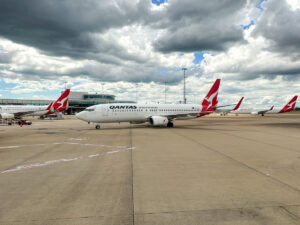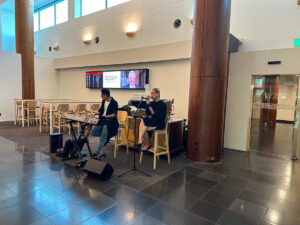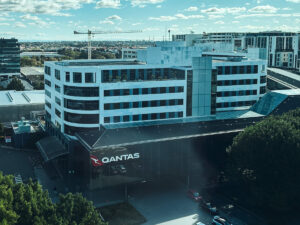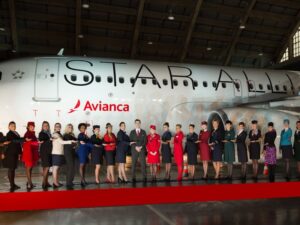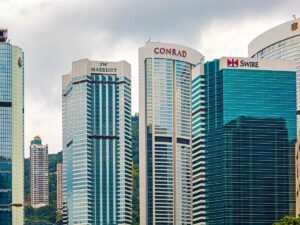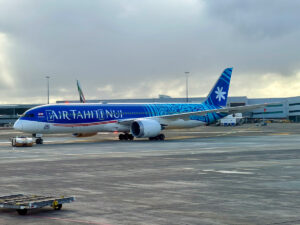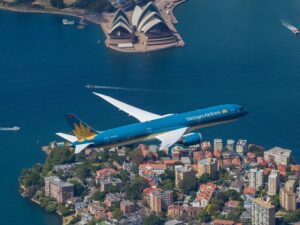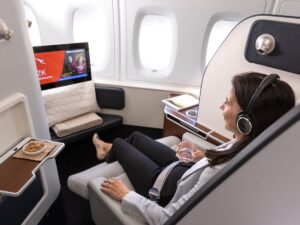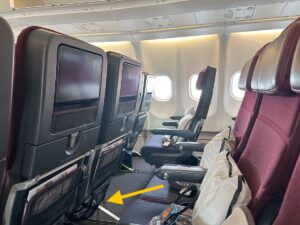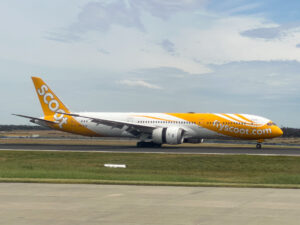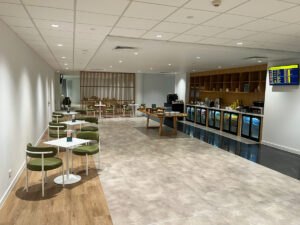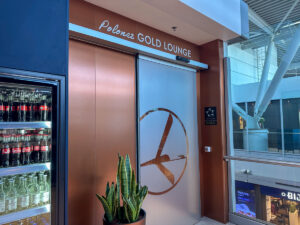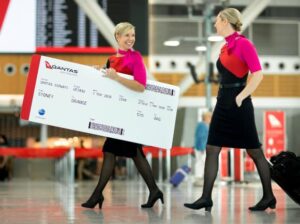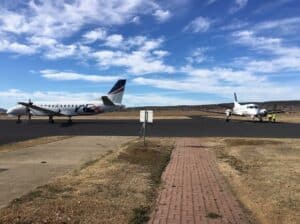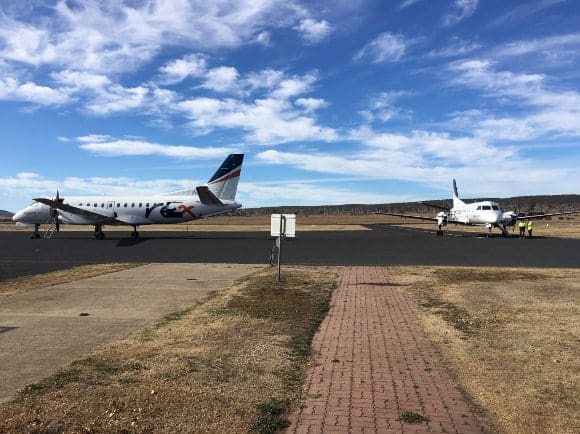
Rex’s plan to launch capital city flights
In May 2020, Rex announced an ambitious proposal to acquire new jet aircraft and launch flights between Australia’s capital cities. Virgin Australia had just collapsed into voluntary administration, and at the time this announcement was met with healthy skepticism by many in the industry.
But this week, Rex signed a long-form term sheet and announced it is in “advanced negotiations” with PAG Asia Capital to secure $150 million in funding to support the launch of capital city flights from 1 March 2021. Under the proposal, the Asian private equity firm would eventually hold 48% of Rex’s issued shares. The funding is not yet confirmed, and is subject to regulatory approvals including from the Foreign Investment Review Board. But it shows that the airline is serious.
“With PAG’s support, I have every reason to believe that Rex can successfully launch its domestic major city jet operations,” Rex Executive Chairman Mr Lim Kim Hai said.
“As a well-established carrier with an impeccable track record, I am confident that Rex will deliver to Australians an alternative major city domestic service that is safe, reliable and affordable. Rex’s affordable fares will support Australia’s economic rebuild and recovery efforts,” he said.
Rex plans to start by leasing 5-10 Boeing 737 jets, possibly coming from Virgin Australia, and focus on the normally lucrative “golden triangle” routes of Sydney-Melbourne, Sydney-Brisbane and Melbourne-Brisbane. Sydney-Melbourne is usually the world’s second-busiest air route, and earned Qantas over $1 billion in revenue last year. Rex has already begun recruiting, and is reportedly hiring a lot of former Virgin Australia staff members.
Rex is already an established airline in Australia, but currently only operates flights from Australia’s capital cities to country towns. Its large fleet consists exclusively of 34-seat Saab 340 aircraft. So operating flights directly between the capital cities will be new for the regional airline.
Is there room for three major domestic airlines?
There’s a bit of a sense of deja-vu here. Australia has traditionally had two major domestic airlines, and when a third player has come along, one airline has normally failed. Ansett collapsed shortly after Virgin Blue entered the market in 2000, and Air Australia’s attempt to become a major domestic airline during the last decade was short-lived.
Qantas has shown that it’s a formidable competitor. Virgin Australia has already tried – with only limited success – to compete head-on with Qantas on domestic trunk routes. Although Qantas will be under heightened ACCC scrutiny over the next few years, it will likely compete very fiercely against the threat from Rex.
On one hand, Rex may have a real opportunity here because Virgin Australia is currently weak. But so is demand for air travel. It may prove smart to expand and invest while the market is depressed and planes are cheap, but Rex’s strategy relies on a strong and fast recovery in domestic aviation.
How will Rex woo frequent flyers?
The other question is how Rex plans to steal market share away from the incumbent airlines. It’s not yet known whether Rex will offer Business class or things like in-flight entertainment and wifi (it currently doesn’t on its regional flights). But we do know that Rex will offer included checked baggage, meals on board and assigned seating.
Crucially, Rex’s Deputy Chairman John Sharp has also flagged that fares will be priced “at affordable levels”. This indicates that Rex won’t be necessarily chasing the high-yielding corporate market, but leisure and budget-conscious travellers.
This sounds almost exactly like Virgin Australia’s risky new strategy.
One thing that Virgin Australia and Qantas have, which Rex doesn’t, are very strong frequent flyer programs. Rex’s current loyalty program, Rex Business Flyer, is a bit of a joke – it has no partners, and is basically just a “buy 18 flights, get 2 free” scheme through which the cheaper fares don’t qualify to earn anything. To join Rex Business Flyer, you need an ABN and there is a $99 joining fee (which, unlike Qantas Frequent Flyer’s ridiculous $99.50 joining fee, can’t be easily avoided).
Although it does offer lounge membership and operates three small airport lounges in Sydney, Melbourne and Adelaide (which are currently closed due to COVID-19), Rex also doesn’t have any status tier levels for frequent flyers. This will make it very difficult for the airline to woo top-tier frequent flyers from Qantas and Virgin Australia who are used to perks like lounge access whenever they fly.
Knowing this very well, Virgin Australia relaunched its Velocity Rewards program as Velocity Frequent Flyer when it became a full service airline in 2011. It then launched a huge status match targeting Qantas Frequent Flyer members. Around two thirds of top-tier Qantas Frequent Flyer members flew with Virgin Australia after obtaining a status match, and around half of those continued flying with Virgin regularly. This was a key contributor to Virgin’s initial success.
Rex is reportedly planning to launch a new frequent flyer program, which based on projected valuations would likely be a coalition program (similar to Qantas Frequent Flyer or Velocity) with many non-airline partners. But this won’t happen until at least a year after it begins operations on the “golden triangle” routes.
Rex may also want to consider expanding its current airport lounges, as well as building a new lounge in Melbourne. Rex’s airport lounges are currently suitable for the small number of passengers on its regional flights, but may quickly become overcrowded if Rex goes from operating flights with 34 seats to 180 seats.
While they’re at it, Rex should probably also invest in a new website. 2005 called, and it wants its website back.
A lack of partner airlines
Rex could also be at a disadvantage because it lacks international partner airlines to provide feed for its services. This may not be a problem while international borders are closed, but borders won’t remain closed forever.
Rex will have a natural advantage, however, from its ability to connect people to and from country towns. It will soon be the only airline offering seamless one-stop connections from Melbourne to Grafton, or Brisbane to Mount Gambier, for example.
Rex does currently have an interline agreement with Virgin Australia, which it launched in 2003. At the time, Virgin Blue (as it was then called) only operated Boeing 737s on major domestic routes and Rex only operated on regional routes.
With Virgin now retiring its ATR72s and withdrawing from many regional routes, this is more or less what’s happening now. Some industry observers believe that Rex and Virgin would be better off focusing on their respective strengths and expanding their partnership in a way that complements each other’s existing network, rather than competing head-on.
Instead, not only does Rex plan to acquire its own jets and launch capital city routes, but it will also take over services on many of the regional routes that Virgin Australia has recently abandoned (provided the airports don’t pass on security screening charges, according to Rex’s recent press release).
It will be interesting to see how this all works out. Qantas, Virgin and Rex will all fight as hard as they can. But if history is any indication, one of these three airlines may not survive in the long term.
What do you make of Rex’s expansion into major capital city routes? And what would the regional carrier need to do to win you over?
Join the discussion on the Australian Frequent Flyer forum: Rex to fly between Australian capital cities?
